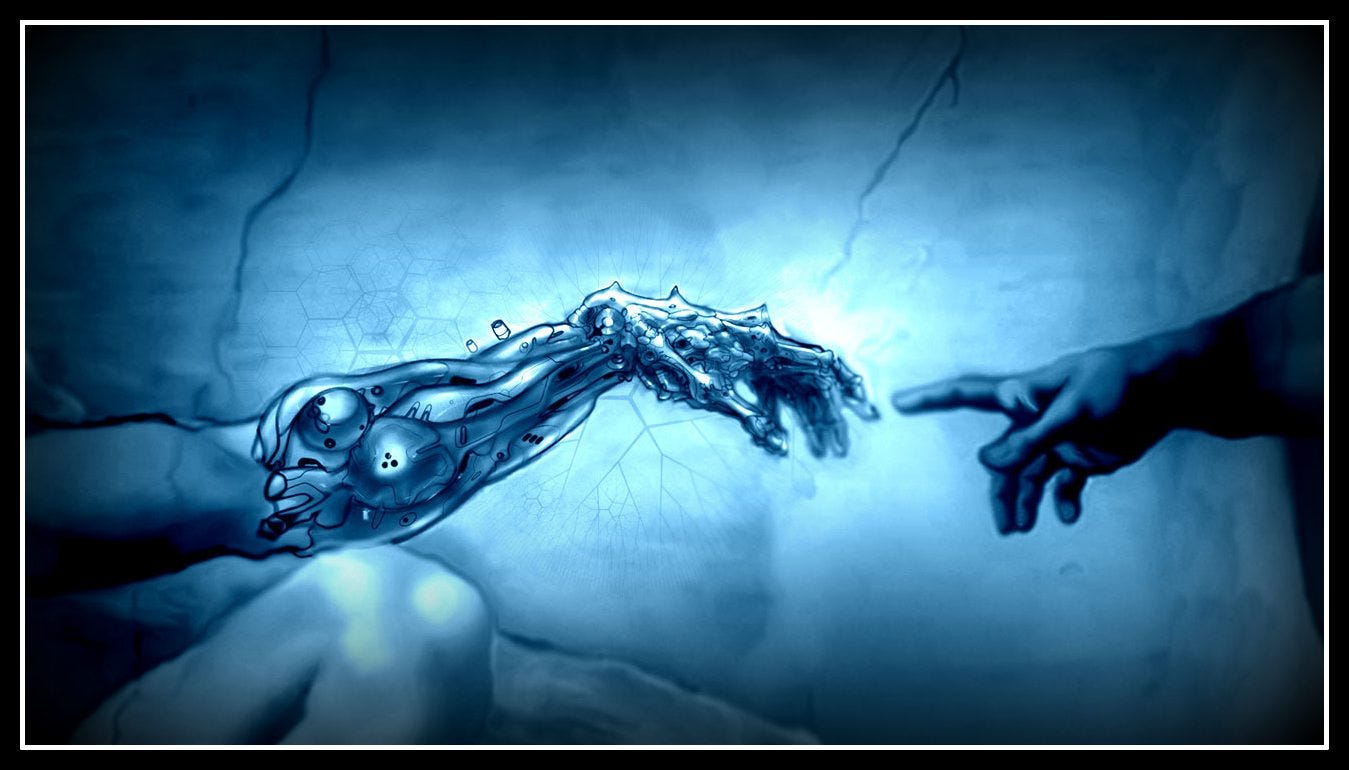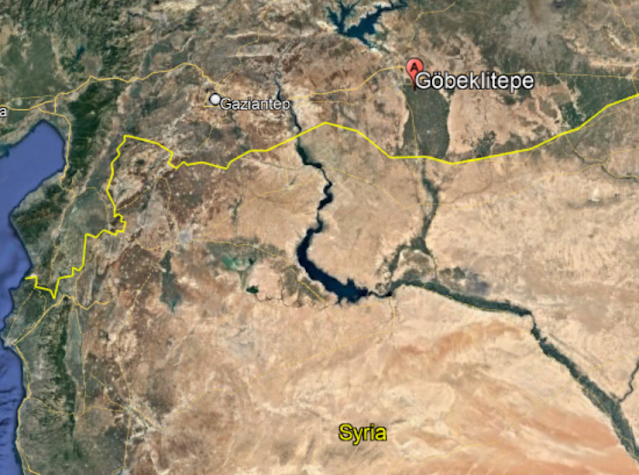
What is Man? Mario Chamorro and I differ on the answer.
Preface: My employer has been really good about this so far. They appear to be doing what is necessary to comply with what they feel they are obligated to do, but are not going beyond it with the fervor of some corporations. That said, they have instructed us to prepare and have ready any exemption letters we may have and I have done as they instructed. Mine is below...
Dear (REDACTED),
I have greatly enjoyed serving (REDACTED) and our client for
the projects to which I have been assigned. I believe that I have served well,
and brought credit upon (REDACTED) for hiring me. Nevertheless, I object on
religious grounds to each of the three injections which the present
administration of the federal government is attempting to force upon the very
people that any government must rely on- its productive workers. I am writing
in order to obtain a religious exemption from (REDACTED) in order to continue
my service to this company. It is my hope and belief that the client will be
amenable to this request.
In evaluating the substances which the present administration is attempting to
coerce me into injecting into my body under the threat of impoverishment for
me, my wife, and our three children, it should be noted that one of the
injections is not like the others. The Johnson and Johnson vaccine does not use
the same methods as the Pfizer or Moderna injections. Although I have religious
objections to all three, my reasons are different for the Johnson and Johnson
vaccine as compared to the other two.
As a part of my religious convictions, I favor respect for innocent human life
and regret the prevalence of abortion in America. If they have to happen, we
still don’t have to profit off of them. And we surely don’t have to inject
products produced from the same into our bodies! I can document the sincerity
of these convictions not only by producing a long list of pro-life political
candidates to whose campaigns I contributed, but also by the accounts in
another book I wrote- my
political autobiography.
It is my understanding that the Johnson and Johnson vaccine
uses aborted fetal cells in all three stages; creation, manufacture and
testing. The other two only used such cells in testing. In perfect frankness,
using them in testing is more of a gray area for me. The substance could still
exist without the testing.
Not so in the case of the Johnson and Johnson vaccine. They
are intrinsically bound. The product could not exist without aborted fetal
material. Therefore, I cannot in good conscience take an injection derived from
such sources. I am astounded that I should even have to write a letter in order
to say so, it should be so obviously a matter of conscience.
The other two vaccines operate by a different and novel principle. Indeed, the
CDC changed the definition of vaccine just this past September. The CDC’s
definition changed from “a product that stimulates a person’s immune system to
produce immunity to a specific disease” to the current “a preparation that is
used to stimulate the body’s immune response against diseases.” It is doubtful
that the action of the Pfizer and Moderna products would even meet the CDC’s
definition of “vaccine” prior to this change.
This is because these substances are not “products that
stimulate a person’s immune system to produce immunity” like every past
vaccine. Rather, these preparations change the human genetic material itself in
such a way that our own bodies produce spike proteins like those in the initial
version of the COVID-19 virus. Our immune system is then stimulated by the
newly-engineered products of our co-opted genomic material.
Unlike vaccines of the past and present, the product in the original
injection doesn’t stimulate our immune system, rather it changes us so
that our own bodies would stimulate our immune system. If they hadn’t changed
the definition, it would not be accurate to even label the Pfizer and Moderna
injections as “vaccines” because they don’t directly stimulate our immune
systems, rather they change us in such a way that we stimulate
them.
It is my contention that what is happening here is more than
an inoculation against COVID-19. It is also an initiation into what amounts to
a new quasi-religion. One that has a view of man that is the polar opposite of
that of classical Christianity. That
quasi-religion is “transhumanism”. It turns people into unwitting
practitioners of a belief system incompatible with the Christian faith.
In Christianity, man is a creation of God, capable of
bearing the very Image of God, and the pinnacle of His creation. Though it is
understood that we fall short of His glory, we are but for a little while lower
than the angels as it says in the Psalms. This life is just the test, and we
look forward to new bodies from God in the resurrection. If humans are to be
more than they are now, it will be the gift of God.
Transhumanism holds the exact opposite assumptions about the nature of man.
That man is the product of imperfect natural forces, there is nothing special
about him other than his ability to shape things by his own power. And they
would apply that power to the human form itself, using technology to produce
“humanity 2.0”. Indeed, it would be considered an ethical imperative to use
man’s power to change in order to change man himself into something they deem better.
They would cure us of perceived human imperfections by making us into something
else, something greater. By our own wisdom and power, not God’s.
Some even speculate on ways that we could escape the
limitations of our own bodies in death. In direct contrast to Christian ideas,
they want to elevate us to god-like beings in our own strength. They would have
us put an end to death not through the grace of God, but the technology of man.
I want to emphasize that I am not against the use of science and technology on
a restorative basis. If for example, someone has lost their sight because of a
genetic defect which fails to produce a necessary protein, by all means we
should correct that unruly part of nature which is responsible for this
terrible result and introduce genes able to make the protein. I would argue
that we have a moral duty to do so if we can. But this is not making them
something other than what they were meant to be, it is simply healing them so
that normal human function is restored in some area. We are not trying to
re-make man into some other form in doing so, merely returning him to a
condition more typical of our type.
We may have a moral duty to use technology to restore normal
human capabilities, but this isn’t what these two COVID-19 injections do.
Rather, they give us a capacity which is not natural to humans. It is on a tiny
scale what transhumanists want on a large scale. It is the first step to being
re-made by science and technology. I for one do not wish to be re-made. I don’t
wish to participate in what amounts to their quasi-religious practices.
I do not have any special knowledge as to the motives of those at the highest
levels of our government who selected these vaccines and are pursuing these
policies. I know that many prominent and rich people are sympathetic to
Transhumanist-ideals, but I am not saying that the selection of these
particular vaccines is necessarily a ploy to condition the population participate
in, and by habit accept the premises of, transhumanism. But I don’t need to
know motives in order to judge actions.
In practical terms, this is the effect of their polices,
which run counter to two-thousand years of Christian beliefs. Once people have
been conditioned into practicing transhumanism by taking a battery of such
genomic-altering products, transhumanists win the war of ideas without any
ideas being considered. Any contrary theological objection Christians may have would
be undermined without an intellectual shot being fired.
Again, I am not privy to the private motivations of those behind these policies.
At the same time, the fervor and even fanaticism with which these injections
are being forced upon the unwilling is consistent with religious motivations.
By now it is clear that these vaccines are failures. They
don’t stop one from getting or spreading the disease. New permutations of the
virus easily evade them. What immunizing effects they have are largely temporary.
Regions with 90% plus vaccination rates are still seeing an explosion of new
cases in the vaccinated. One might argue that they have a moderate effect on
reducing fatalities among the infected, but no more so than that demonstrated
by safer and time-tested products whose use the government is falling all over
itself to suppress. Add to this that the benefits of the well-supported
scientific concept of natural immunity are ignored in all their policies.
So while I have no definitive evidence of what would in effect be a conspiracy
to condition the population to accept and unwittingly practice transhumanism,
their actions are difficult to explain outside of some ulterior motive.
Indeed, the more obvious it becomes that the vaccines are a failure, the more
strident their efforts to pressure people to comply become. I don’t know that a
quasi-religious belief in transhumanist ideas among the elites is responsible,
but something must explain this increasingly bizarre and otherwise
irrational behavior.
My spiritual forebears risked life and limb for refusing to
participate in an innocuous act of burning incense to a statue of the emperor
in a support of a state-belief system. From that spark developed the concept of
human liberty and freedom which proved a blessing to the people of the west for
centuries afterward. I intend to follow in their footsteps. I appeal for a religious
exemption from this vaccine mandate.
Respectfully,
Mark
M. Moore
***********************************
The books which I mention in the piece
You Tube Channel



